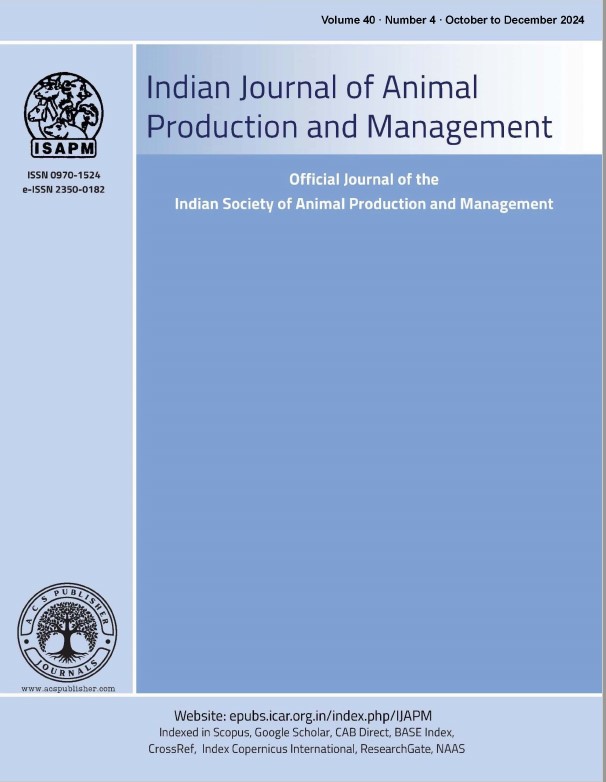Effect of linseed oil supplementation on performance and carcass traits of broiler chickens
DOI:
https://doi.org/10.48165/Keywords:
Broiler chicken, Linseed oil, N- 3 fatty acids, PerformanceAbstract
The experiment was conducted to study the effect of linseed oil supplementation on performance and carcass traits of broiler chicken. For this purpose, 240 day-old commercial male broiler chicks were randomly divided into four dietary groups with six replicates of ten birds each (4x6x10) and reared in deep litter up to 35 days of age following standard management and vaccination schedule. The birds were offered with corn-soya based broiler pre-starter (0-11 days), starter (12-21 days) and finisher (22-35 days) diets. The control diet (T1) was prepared with soybean oil and diets for remaining treatment groups (T2- T4) were formulated by replacing soybean oil with different levels of linseed oil. The experimental design consisted of T1 - Control diet with 3% soybean oil, T2 – control diet with 2% soybean oil and 1% linseed oil, T3 - control diet with 1% soybean oil and 2% linseed oil and T4 - control diet with 3% linseed oil. The performance of broiler chicken was evaluated in terms of weekly body weight gain (WBWG) and feed consumption (FC) as influenced by the supplementation of various levels of linseed oil. At the end of experiment (35th day) two birds from each replicate were randomly selected for estimating slaughter parameters. Feed consumption was unaffected due to different dietary treatments. Significant (P<0.05) increase was noticed on the body weight gains and FCR of broilers. The Carcass traits like dressing yield, eviscerated yield, liver and giblet percentage were not influenced by the inclusion of n-3 fatty acid sources. It can be concluded that linseed oil at 2% level in the diet could be used to improve growth performance in broiler chickens.

